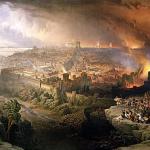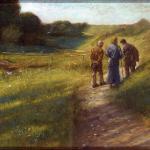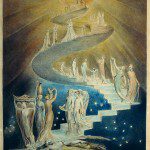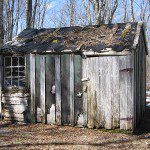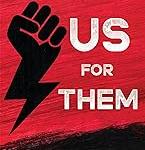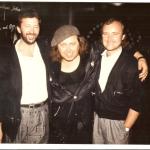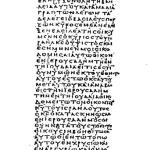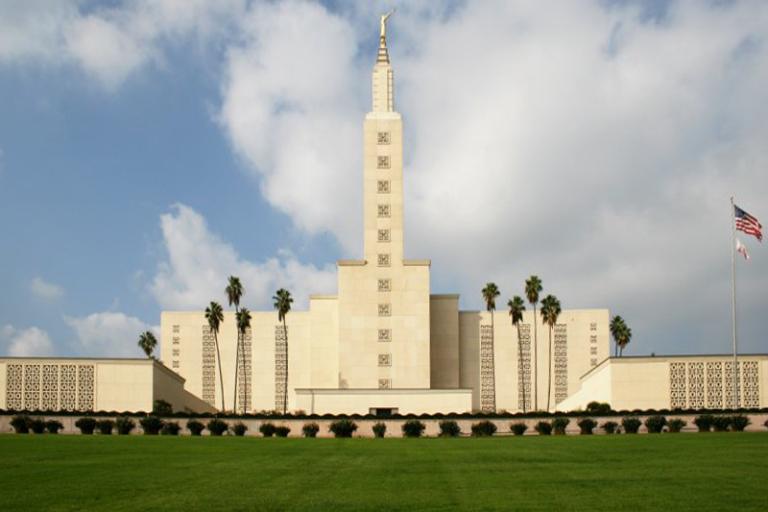
I hope that people out there are not so confused as to be unable to decide which holiday they should celebrate tomorrow: “Biden Proclaims Easter Sunday ‘Transgender Day of Visibility’”
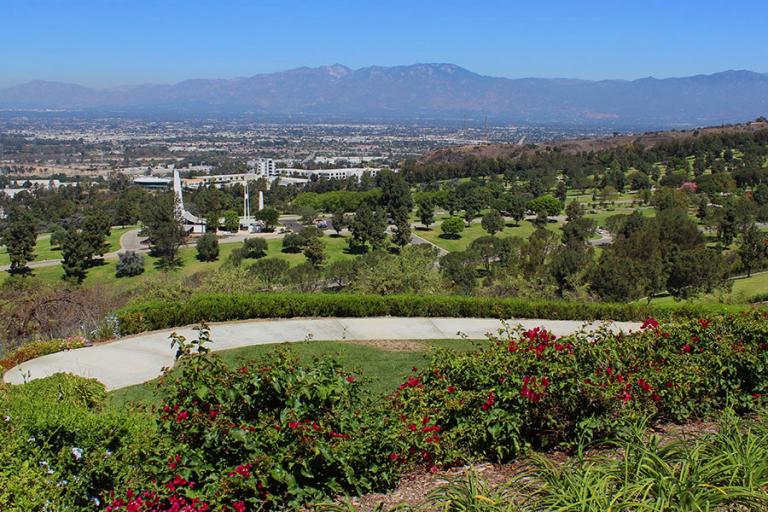
(Wikimedia Commons public domain image)
Both of my grandfathers died well before I was born. Both of my grandmothers died when I was five years old. I’ve always envied friends who were able to get to know, and to make memories of, their grandparents.
I don’t think that I have any actual memories of my maternal grandmother. She lived in St. George, Utah, while I was growing up in Southern California. My “memories” of her are, I think, really just images from photographs. Curiously, though, I still retain one very clear picture of being on the lawn of the mortuary in St. George — it’s still there, on St. George Boulevard — when we went up to Utah for her funeral. Nothing more than an image of grass and a sunny day. That’s all. No narrative or story. Every time I pass by the mortuary in St. George, it comes back to me. And I can summon it up right now.
Having lost their farm in their old age (a sad family tale) and after most of their children had left North Dakota for Southern California, my paternal grandparents spent their last years in the greater Los Angeles area. As I say, my grandfathers both died before I was born. But I sometimes think that I can still hear my Peterson grandmother’s voice in my mind: It’s a breathy, old-woman’s voice, with a strong Norwegian accent. I have to admit, though, that I may only be remembering the voice of her little sister, my great aunt, who lived to be well past a hundred years old and whom I met at least a couple of times when I was, by little-kid standards, considerably older than I had been at the death of my grandmother.
The first death that really impacted me was not of a family member. It was that of a friend from church. He was more than a year older than I was and a year ahead of me in school; he had a brother who was my age. But I knew him fairly well; he and his family lived only two or three blocks from my house. He had a vivid personality and a lot of mischievous energy.
He went out for groceries with his father one night, almost exactly fifty-five years ago. As they finished their shopping and were headed toward their car in the parking lot, a friend of his rode by on a new motorcycle and invited my friend to ride behind him. The friend would take him home. My friend’s father agreed to let Gordon go for a ride on the motorcycle, reminding them to be safe.
Only a few minutes later, they came to a familiar railroad crossing. A train was coming. The lights were flashing and the crossing gates were already down, but the cyclist — probably because he was a teenage male with a new motorcycle and a friend to impress — seems to have decided that he could beat the train.
Unfortunately, though, he couldn’t. The motorcycle collided in some way with the train. The driver of the motorcycle somehow survived with only relatively minor injuries. My friend, though, was caught by the train and dragged for at least a hundred yards. He was pronounced dead at the scene.
This was the closest death that I had yet experienced, and it shocked me deeply. Old people died; I knew that. It was natural. But this friend was approximately my age. And yet he was gone, snatched suddenly and irrevocably from the very circles in which I moved at church, at school, and in my neighborhood.
One other detail that I still recall, almost photographically: My parents and I joined in the funeral cortege traveling from our church to the Rose Hills Cemetery (where, now, their own bodies lie, along with the bodies of many of my other relatives, mostly from my father’s family). The route of that procession of cars took us by an elementary school, on the playground side of the school campus.
It must have been recess playtime. Dozens of children crowded up against the chainlink fence separating them from the street. They were fascinated to watch a funeral procession travel past them. After all these years, I can still see them very clearly in my mind, with their hands above their heads holding on to the fence and their faces right up against it.
“How old was the old coot?” one of the boys yelled as we passed slowly by. (The answer was that he was seventeen.) I winced, hoping desperately that my friend’s parents had not heard the boy’s question.
I’ve visited Gordon’s grave once or twice since then, when I’ve been there to place flowers on the graves of my paternal grandparents, my own parents, at least three uncles, an aunt, a niece, and a lot of the people that I knew growing up. His mother and father joined him years later. I’ve wondered what things he might have done, what kind of a person he might have been. But his earthly story ended suddenly on an April evening in 1969, and there is no more to tell beyond that point.
Easter says, however, that his story and our stories continue. Wonderfully.
I’ll mention one particular visit to my parents’ graves, which took place in July 2018. I made a note of it here, which is why I remember that specific day relatively well.
The view from their burial place is splendid, and this was a beautiful, clear day. We could see the skyscrapers of downtown Los Angeles off in the distance to the west, and, to the north, the San Gabriel Mountains — including Mt. Wilson, which I saw every day of my life growing up, with its television broadcasting towers and its observatories (from which Edwin Hubble first noticed the red shift of distant galaxies, thus discovering the expansion of the universe and leading to the theory of the Big Bang). It’s a very peaceful place, and I love it. The inscriptions on their tombstones sum them up, simply but eloquently: For my Mom: “Beloved wife and mother,” and then “Family first.” For my Dad: “Beloved husband and father,” followed by “A good man.” (I once dedicated a book to him with a citation from John 1:47 in the KJV New Testament: “an Israelite indeed, in whom there is no guile.”)
I was happy again that day to see the grave next to my mother’s, on the opposite side from my father’s. Why happy? Let me explain.
My father died on 30 June 2003. My mother died on 11 April 2005. I think it was on our first visit to the cemetery after my mother’s passing that my wife and I, driving up the rather steep hill toward my parents’ graves, noticed an elderly man who was toiling painfully up the road. We pulled over and asked him whether he could use a ride. Yes, he said, he could. He was walking to put flowers on the grave of his wife, whose loss, it soon became clear, he still felt with acute pain.
We invited him to ride with us and asked him to tell us where to turn. To our astonishment, his wife’s grave turned out to be about four or five feet from my parents’ burial place. It was separated from their graves by his own tombstone, with his name, “Frenchy M. Morrell,” and his birthdate inscribed on it but, obviously, no death date. We talked for a while, and he spoke movingly about how much he missed his wife, Wanda, who had died in 1985. He was horribly lonely, and he longed to be with her again. We offered him a ride back down the hill and to wherever he wanted to go, but he had planned on spending several hours there by his wife’s grave, and he declined our offer. We never saw him again.
We’ve returned, and I’ve come back alone, many times since then. Whenever I’m in southern California, if I can do it, I visit the cemetery. Every time for years, I looked to see whether Frenchy had finally gotten his wish.
Visiting in the spring of 2013, we immediately noticed that the grass next to my mother’s grave was fresh, and so, with some excitement, I hurriedly walked over to confirm what I suspected: Frenchy was gone. He had died on 30 August 2012.
I was deeply happy for him. After twenty-seven long years of sorrowful separation, he was with his wife again. And my faith tells me that he really is, not merely metaphorically.
We took some of the flowers that we’d brought for my parents that day and placed them on his grave.
“And God shall wipe away all tears from their eyes; and there shall be no more death, neither sorrow, nor crying, neither shall there be any more pain: for the former things are passed away” (Revelation 21;4).
Happy Easter to everyone!


